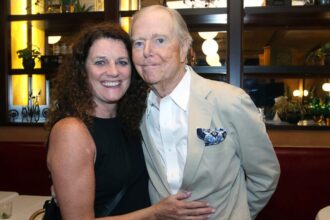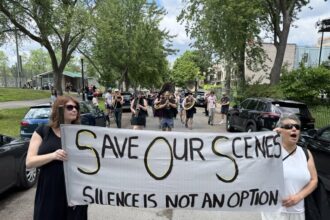The quiet revolution happening in Indigenous music has found its newest voice in 15-year-old Ava Houle. With guitar in hand and wisdom beyond her years, this young Métis musician from British Columbia is embarking on an ambitious tour that will take her across numerous Indigenous communities—a journey that represents far more than just a series of performances.
When Ava steps onto a stage, something remarkable happens. Her voice—powerful yet vulnerable—carries stories that bridge generations. “Music has always been how I process the world,” she told me during our conversation at her family home in Kamloops. “These songs aren’t just mine; they belong to my community, my ancestors, and the land.”
The teenager’s tour, which launches next week, will reach twelve Indigenous communities across British Columbia over the next three months. What makes this initiative particularly significant is that it was entirely organized by youth from these communities, creating a powerful network of support that operates outside mainstream music industry channels.
Indigenous youth artistic expression has seen a renaissance in recent years, with musicians like Jeremy Dutcher and Tanya Tagaq achieving international recognition. However, as cultural commentators have noted, the pathway for emerging Indigenous artists remains fraught with systemic barriers and limited performance opportunities, especially in remote communities.
“When we talk about reconciliation, we often focus on historical redress, but we need to equally invest in Indigenous futures,” explains Dr. Roberta Phillips, an ethnomusicologist at UBC who studies Indigenous musical traditions. “Young artists like Ava represent that future—they’re creating new forms that honor traditional knowledge while speaking directly to contemporary experiences.”
Houle’s music defies easy categorization, blending folk traditions with elements of hip-hop and electronic production. Her lyrics, often delivered in both English and Michif (the language of the Métis people), address environmental concerns, cultural identity, and the everyday joys and struggles of teenage life. This multilayered approach has garnered attention from music critics and cultural advocates alike.
The significance of this tour extends beyond the music itself. Each stop includes workshops where Houle will collaborate with local youth on songwriting and performance techniques. “The most important part isn’t me performing,” Ava insists. “It’s creating spaces where other young people can find their own voices and tell their own stories.”
Funding for the tour came through an innovative partnership between the First Peoples’ Cultural Council and several Indigenous-owned businesses, representing a model of community-supported artistic development that could prove influential for cultural institutions across Canada.
What’s particularly striking about Houle’s approach is her commitment to sustainability. The tour utilizes existing community spaces rather than commercial venues, transportation is arranged through community networks, and digital promotion has been handled entirely by a team of Indigenous youth social media specialists.
This model challenges conventional wisdom about what a successful music career should look like. Rather than chasing streaming numbers or radio play, Houle prioritizes meaningful connection with audiences and community building. “Success for me isn’t about becoming famous,” she explains. “It’s about creating music that helps people feel seen and understood.”
Her parents, both educators, have supported her musical journey while ensuring she maintains balance in her life. “We’re incredibly proud,” says her mother, Marianne Houle. “But we also make sure she has time to just be a teenager, to have experiences that will inform her art in the years to come.”
As Indigenous cultural expressions continue to gain deserved recognition in Canada’s cultural landscape, voices like Ava’s represent something profound—not just talent, but a determination to forge new paths that honor tradition while embracing innovation. Her tour stands as a powerful reminder that the most meaningful cultural movements often begin not with institutional support but with communities deciding to amplify their own voices.
For young Indigenous musicians watching Ava’s journey, the message is clear: your stories matter, your communities will support you, and the future of music in Canada will be shaped by those brave enough to sing their truth. As her tour bus prepares to depart next week, one can’t help but feel we’re witnessing not just the beginning of a promising career, but a shift in how we understand artistic development and cultural expression in this country.

























